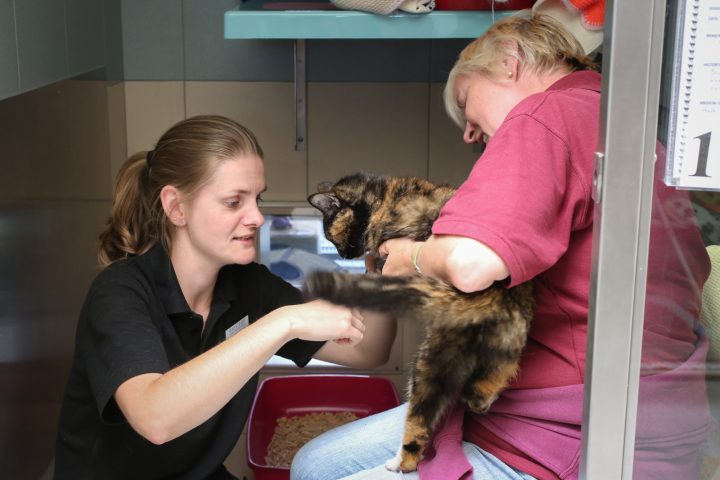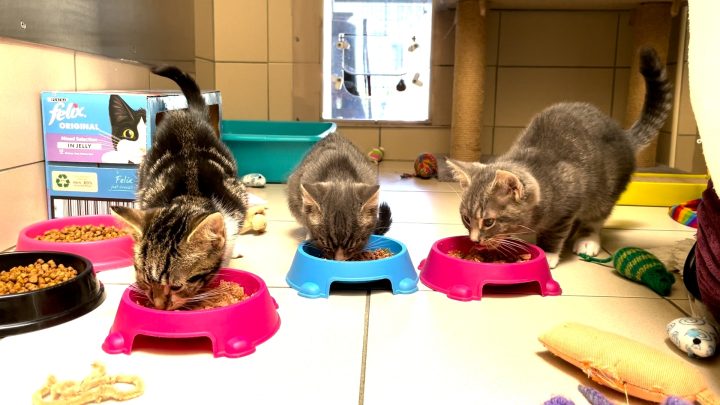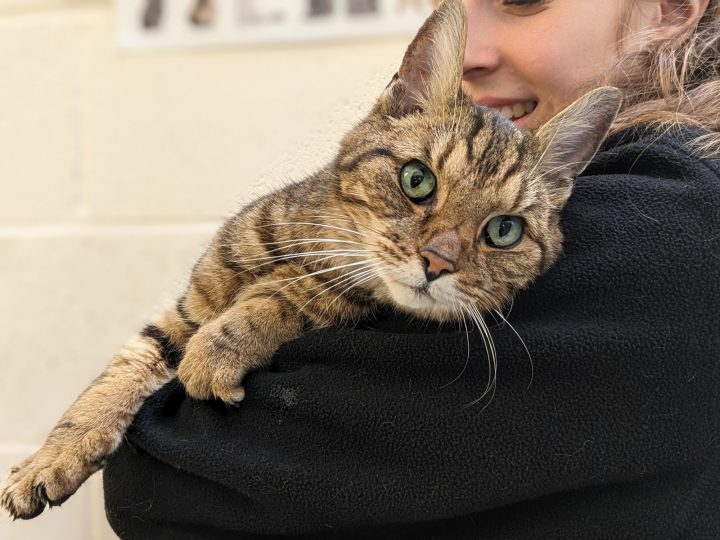Provide a suitable and stimulating living environment
Unless the cat you are looking to adopt has medical needs that require them to live indoors, we ask that cats have access to a garden or outdoor space to explore in. Cats are used to having large territories and can become frustrated and bored if kept confined indoors. Some cats will have more road sense than others so if you live near a road, we may recommend a more road-savvy cat for you.
Freedom of choice is very important to any animal’s welfare, so we would recommend providing a cat flap to allow your cat to come and go as they please. If you have problems with other cats coming into your home, you can provide a microchip operated cat flap that will only open for your cat’s unique microchip.
Cats will need to be provided with at least two litter trays (even if they go outdoors). These will need to be cleaned daily as cats are very fastidious and won’t use a dirty litter tray. Make sure the litter trays are in a quiet area of the house, so they have some peace and quiet when toileting.
Is your property rented? If so, we will need to see permission from your landlord that you are allowed to keep cats.

Provide a suitable and stimulating living environment
Unless the cat you are looking to adopt has medical needs that require them to live indoors, we ask that cats have access to a garden or outdoor space to explore in. Cats are used to having large territories and can become frustrated and bored if kept confined indoors. Some cats will have more road sense than others so if you live near a road, we may recommend a more road-savvy cat for you.
Freedom of choice is very important to any animal’s welfare, so we would recommend providing a cat flap to allow your cat to come and go as they please. If you have problems with other cats coming into your home, you can provide a microchip operated cat flap that will only open for your cat’s unique microchip.
Cats will need to be provided with at least two litter trays (even if they go outdoors). These will need to be cleaned daily as cats are very fastidious and won’t use a dirty litter tray. Make sure the litter trays are in a quiet area of the house, so they have some peace and quiet when toileting.
Is your property rented? If so, we will need to see permission from your landlord that you are allowed to keep cats.


